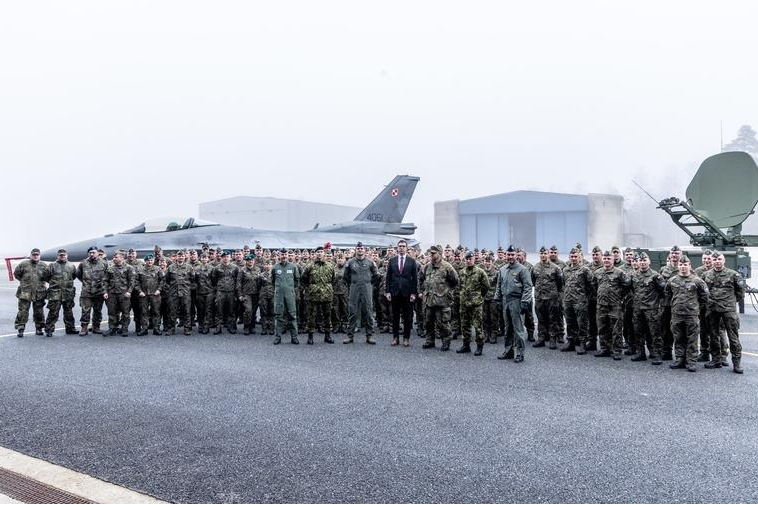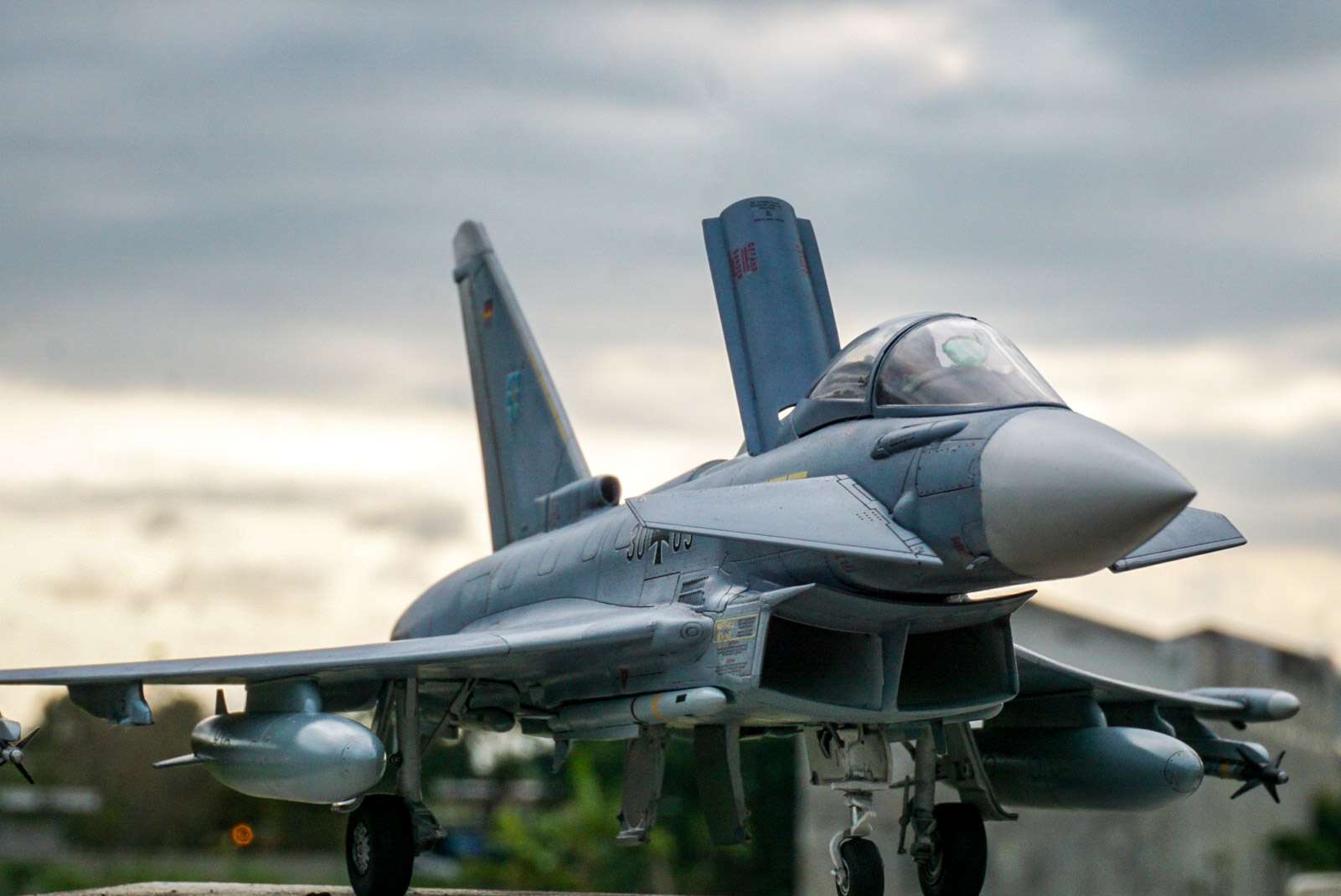The Polish F-16 detachment, which had been guarding the Baltic airspace as part of NATO’s Enhanced Air Policing Mission, has officially passed the baton to a German Eurofighter Typhoons.
Designed To Beat China’s JF-17, Korean FA-50 & Even India’s Tejas, Meet USAF’s Trainer Jet, Red Hawk
On February 28, in a press release, NATO announced that the Polish F-16 detachment officially transferred responsibility for the Enhanced NATO Air Policing Mission to a German contingent consisting of five Eurofighter jets from the German Air Force.
During the formal ceremony at Ämari Air Base in Estonia, the Estonian Air Force bid farewell to the Polish Air Force detachment, recognizing their commitment and successful mission execution in support of NATO’s collective security.
Estonian authorities awarded achievement medals to members of the Polish contingent for “their service in the protection of the Baltic airspace.”
Kusti Salm, Chancellor of the Estonian Ministry of Defence, said, “The NATO Air Policing mission has been operating seamlessly out of Ämari for ten years already, which is a clear testimony of NATO’s determined readiness to protect the airspace of its allied countries in the Baltic Sea region and to protect every ally. This is the second time Poland has participated in the mission in Ämari. I thank Lieutenant Colonel Michał Zloch and the Polish contingent of Orlik 12 for their professionalism and dedication in the successful execution of this mission.”

Following the Baltic States’ accession to the Alliance on March 29, 2004, the North Atlantic Council’s decision mandated NATO member air forces to safeguard the airspace of Estonia, Latvia, and Lithuania on a rotational basis.
Šiauliai Air Base in Lithuania serves as the principal hub for the Baltic Air Policing mission, reflecting the strategic importance of this location in ensuring regional security.
The commitment to the Baltic Air Policing mission was further reinforced indefinitely during NATO’s 2012 Chicago summit, emphasizing the collective approach to preserving the integrity of NATO airspace and highlighting the solidarity among Allies in achieving security and protection.
However, in response to “Russia’s illegal and illegitimate annexation of the Crimean peninsula” in 2014, NATO initiated Enhanced Air Policing as part of its Assurance Measures.
Under the Assurance Measures, NATO enhances Air Policing across two regions. Member states are urged to contribute extra assets, bolstering Baltic Air Policing in the north and reinforcing national Air Policing in the south.
Since 2014, Baltic Air Policing has been continuously boosted with a second detachment stationed at Ämari, Estonia. Meanwhile, Romania and Bulgaria have received temporary reinforcement from Allied Air Forces in the south, despite their ability to conduct independent operations.
NATO Utilizes Lielvarde Base For Baltic Air Policing For The First Time
On February 26, 2024, five Eurofighter jets from the German Air Force landed at Lielvarde Air Base in Latvia, marking the first time NATO has utilized Lielvarde for the Baltic Air Policing Mission.
Germany’s contribution involves providing interceptors for the mission and enhancing the alliance’s airborne surveillance and response capabilities. Starting from March 1, the German Eurofighters will be on standby to safeguard the Baltic Sea region’s skies.
The German fighters will complement the Air Policing capability provided by Belgian F-16s and French Mirage 2000-5s stationed in Šiauliai, Lithuania.
“We are looking forward to this mission; for the first time, NATO is using Lielvarde for the Baltic Air Policing mission, and we will provide the interceptors for the mission,” said Lieutenant Colonel Swen Jacob, German detachment commander.
He added, “Now that the jets have arrived, our detachment is ready for the final inspection of the set-up at Lielvarde by NATO’s Combined Air Operations Centre (CAOC) from Uedem. From Friday on, we will be available for mission execution. Closely integrated with the Host Nation Latvia, our Belgian and French colleagues deployed in Lithuania, and the air controllers at the CAOC and the regional Control and Reporting Centres, we will demonstrate NATO’s commitment to collective deterrence and defense.”

The relocation of the NATO mission to Latvia is a result of ongoing runway maintenance at Ämari Air Base in Estonia. The Air Base, which has been in operation since 2010, is undergoing scheduled repairs on its runway and flight line infrastructure.
The construction is anticipated to last until October 2024, during which the base will remain open for Allied helicopters. Additionally, a German deployable Control and Reporting Centre will be established, enhancing NATO’s Air Surveillance and Control architecture in the Baltic Sea region.
This temporary measure ensures the continuity of NATO operations while facilitating necessary improvements at Ämari Air Base. Once construction is completed, NATO allies and Estonia will resume aircraft operations from the base, contributing to the long-term security and stability of the Baltic region.
- Contact the author at ashishmichel(at)gmail.com
- Follow EurAsian Times on Google News




